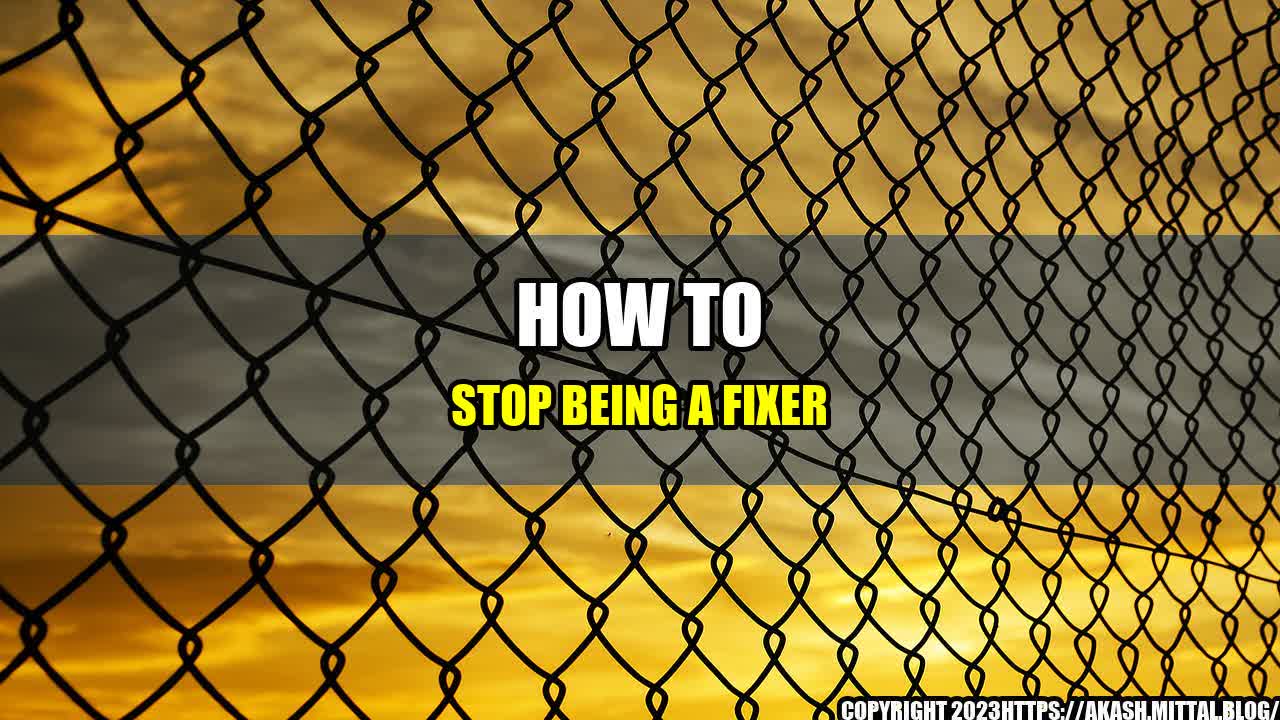The Fixer
Meet Sarah. She's a fixer. She's always there for her friends and family, offering to help them with their problems, big or small. Sarah loves being needed and feels important when she can help someone out. But lately, Sarah has been feeling overwhelmed and stressed out by all the fixing she's been doing. She's starting to realize that she can't solve everyone's problems, and that it's taking a toll on her own life.
If you can relate to Sarah, you're not alone. Many of us have a natural inclination to want to fix things and make them better for others. But sometimes, this behavior can become problematic and even unhealthy. In this article, we'll explore how to stop being a fixer and find a healthier balance between helping others and taking care of ourselves.
The Fixer's Downfall
While there's nothing inherently wrong with wanting to help others, being a fixer can have some negative consequences. Here are just a few:
- Burnout: Constantly helping others can lead to exhaustion and burnout. Fixers may neglect their own needs and become overwhelmed by the demands of others.
- Enabling: Fixers can inadvertently enable bad behavior in others by constantly cleaning up after them and solving their problems. This can prevent the other person from learning how to take responsibility for their own actions.
- Resentment: Fixers may start to feel resentful or unappreciated when they don't receive the recognition or gratitude they expect.
- Lack of Boundaries: Fixers may have difficulty setting boundaries and saying "no" to others, leading to feeling taken advantage of or used.
While being a fixer can come from a good place, it's important to recognize that it can have negative consequences if not managed properly.
How to Stop Being a Fixer
So, how can you find a healthier balance between helping others and taking care of yourself? Here are some tips:
- Recognize Your Limits: It's important to recognize that you can't solve everyone's problems and that it's okay to say "no" sometimes. Take stock of your own needs, energy levels, and priorities before offering to help someone else.
- Encourage Self-Sufficiency: Instead of always solving other people's problems, encourage them to find their own solutions. Ask questions that guide them toward finding their own answers and avoid jumping in with your own suggestions.
- Focus on Yourself: It's important to take care of your own needs and prioritize self-care. Set aside time for yourself, whether it's exercise, meditation, or something that brings you joy.
- Practice Boundaries: Practice saying "no" and setting boundaries with others. This can be tough, but it's important to communicate your own needs and let others know when you're not available to fix things for them.
By practicing these tips, you can find a healthier balance between helping others and taking care of yourself.
Conclusion
Being a fixer can come from a good place, but it can also have negative consequences if not managed properly. By recognizing your limits, encouraging self-sufficiency, focusing on yourself, and practicing boundaries, you can find a healthier balance between helping others and taking care of yourself.
- Recognize Your Limits.
- Encourage Self-Sufficiency.
- Focus on Yourself.
- Practice Boundaries.

Curated by Team Akash.Mittal.Blog
Share on Twitter Share on LinkedIn